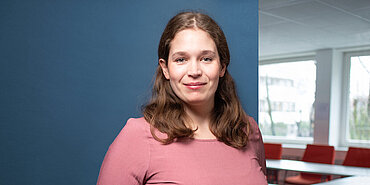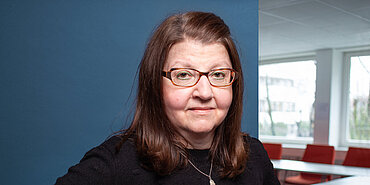ijab.de: Can you describe the current situation in Chengdu in Sichuan province?
Professor Wei Zhang: By 22 April 2020 Sichuan province had officially registered 561 Covid-19 infections, with 557 patients recovered and discharged from hospital. One individual is still being treated; three people died. 99 individuals are still under observation by medical professionals (source: Health Commission of Sichuan Province).
In late February or early March most people went back to work, yet many are still working from home. People still wear facemasks whenever they leave the house.
In Chengdu, pupils are gradually returning to school. Upper-secondary and middle-school students went back on 13 April and 20 April, respectively, and year 5 and 6 primary school children returned on 27 April. The start date for primary years 1 to 4, kindergartens and universities is 6 May. Very strict rules have been imposed on schools; for instance, the pupils have to take breaks and eat in the school canteen in separate groups.
ijab.de: Has Sichuan University begun to give its social work lectures again? Were or are the students involved in volunteering to combat the disease?
Professor Wei Zhang: The provinces have each set their own dates for when students can return to university. Sichuan University, where I work, has not set a definite date. That being said, the university term started in late February as scheduled, with online tuition offered in all bachelor’s and master’s programmes. I teach three online courses for bachelor’s and master’s students in social work: individual counselling, social worker counselling and psycho-social counselling. Because the courses are taught online, I have decided to incorporate several cases I’ve encountered at the Chengdu Hua Ren Social Work Development Center in my lectures to make things more interesting.
Across the country, a large number of lecturers and students have helped to combat the coronavirus pandemic. At Sichuan University, for instance, lecturers were asked to donate for Wuhan. I donated 100 yuan. Some students volunteered to help combat the virus, for instance by checking people’s temperatures, distributing protective equipment and helping senior citizens. These voluntary activities are usually organised by grassroots groups, such as street committees and in the communities, which also mobilise local residents. Some lecturers also volunteered to help out, for instance by offering online counselling for nurses and doctors who are under a lot of pressure, or for citizens who have lost a family member to Covid-19.
I believe that the handling of the pandemic has highlighted the strengths of the Chinese government system with its centralised administration: all measures were imposed top down and implemented rapidly, precisely and efficiently. The crisis has also highlighted the difference between “community” and “individual”. In China, the community ranks above the individual in terms of importance.
ijab.de: In 2013 you founded a social organisation, the Chengdu Hua Ren Social Work Development Center, which provides various services such as counselling for parents on child-raising. What kind of work is the Center doing right now? Have you been able to go back to providing family counselling? And are you able to use alternative communication channels, such as phone or internet?
Professor Wei Zhang: The coronavirus broke out to coincide with Chinese New Year. From then on people were unable to leave their homes for a long time. The Center was unable to offer in-person counselling and had to shut down for a few weeks. In late February, however, some clients urged us to start offering online counselling. And for good reason: by this time, parents had been stuck at home with their children for over a month. The children were supposed to do their schoolwork online and teachers had to offer online classes, but the schools had imposed some complicated rules. Both parents and teachers were overstretched, which worsened domestic tensions. In response, the Center began to offer online counselling in late February.
Our target group is still parents as well as primary and middle-school teachers. Although online counselling has a different feel to it than in-person sessions, it has delivered very valuable support to parents and teachers. The Center has provided educational concepts and helped clients to develop important skills, which has been beneficial to clients in managing stress. A lot has changed for parents and teachers, also for their families and children.
ijab.de: Has there been, or is there still, higher demand for family counselling in this situation? If so, what kinds of challenges have families been struggling with, and how can the Center help clients to manage them?
Prof. Dr. Wei Zhang: At the moment demand appears to be higher. But the challenges are the same as they ever were. The issues that clients want to talk about haven’t changed. They still struggle with our performance-oriented education system, the problems this produces for child development and child-rearing, and the fears and relationship issues that result between generations and family members. The only difference is that these problems are now amplified.
To be specific, China’s school system is still performance-oriented, and Chinese parents tend to have a very narrow unterstanding of child-rearing. In their eyes, child-rearing means “collecting knowledge and techniques”. In China, parents are seen as an extension to the school system. For instance, many teachers expect parents to supervise their children’s homework. Also, many parents are worried about their children’s future. They become afraid and stressed when they see their children struggling to learn. Some say that they get along well with their kids, but once they try to help them with their schoolwork, they’re suddenly seen as the enemy. Now that lessons are being taught online, these parent-child conflicts are a daily occurrence in many families. In addition, parents don’t always agree on how to raise their children. Conflicts between parents (and between parents and grandparents) are getting worse, the atmosphere in the family deteriorates too, and the children’s healthy development is at risk. Among the Center’s clients, the situation is thankfully not as bad because they have developed good parenting skills over the years. But it is a long journey of learning that requires them to first ask for support from the Center and then apply what they have learned in practice.
In China it is still customary for grandparents to provide childcare. In the current situation, parents and children are at home at the same time, and sometimes even all three generations are in the same household. This tradition won’t change in China, even in this exceptional situation.
ijab.de: Given the current situation, what opportunities could result for the social work field in China?
Prof. Dr. Wei Zhang: It looks like some opportunities could open up for social work in China. The social work community has been making an active contribution towards combating the pandemic. However, it is clear that social workers are seen to occupy a similar role as volunteer helpers. Social work as a profession is not clearly defined, so many Chinese, and the government too, are not aware that there is a difference between the two.
This is because the process of professionalising social work in China has only just begun. I believe that priority should be given to turning social work into a genuine professional field. Theories of social work must be developed in order to explain and define its societal function and recognise it as a real career. For this to happen, we need more hands-on research in China.




